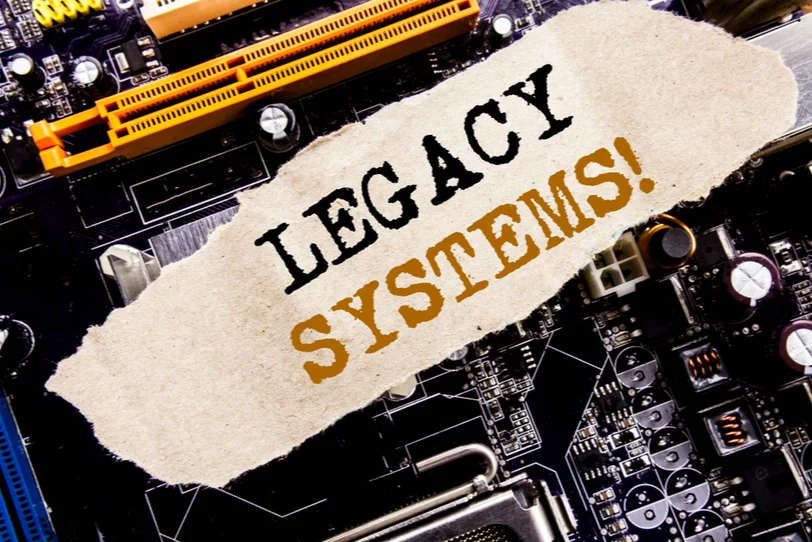
Technology is rapidly changing with time. Most of the companies are upgrading to new technology. But, still, some companies are using legacy technology for running their crucial operations. It is difficult to switch from legacy technology to modern technology. Sometimes you need legacy technology because one of your projects requires older hardware. Thus, some companies are still stuck with legacy technology. But, there are various challenges in using legacy technology. In this article, we are going to talk about the top 5 challenges of using legacy technology.
-
Legacy technology is vulnerable to hacking attacks
Most of the old technology is vulnerable to various attacks. Thus, attackers can easily gain access to your enterprise network. Legacy technology has various security vulnerabilities that can occur due to a lack of maintenance and updates. Due to this, your sensitive data is at risk.
Even your hardworking IT department can sometimes ignore system health checks. Legacy technology requires a lot of care. Your IT department needs to make sure that they are updated. Thus, your legacy systems are vulnerable to various security vulnerabilities. Attackers mostly target legacy systems for getting into an enterprise network.
There is also diminishing expertise and skill gap. It is hard to update old legacy systems. You need legacy technology experts who know everything about the old protocols. Due to this lack of support, most of the IT workers will ignore the old legacy system. They won’t install security patches or new operating systems in these systems. Hence, most of your legacy system will run on an OS which can be easily exploited.
It is very difficult for any organization to update their old legacy systems. You have to constantly check for new security patches. It is best to hire a third party for managing your legacy system. Thus, you can focus on executing your migration plan.
-
Legacy technology is not cost-effective
Many people think that legacy systems are cost-effective when compared to modern technology. But, it is more expensive to support and update these systems. It is difficult to find people who are experts in legacy technology. The operating system of these systems will also become obsolete with time. You need someone who can constantly maintain and upgrade these systems. Thus, you need to invest a lot of money in keeping these systems running.
It is better to use modern technology like cloud computing. You don’t need to worry about managing your IT infrastructure. Cloud computing will also provide flexibility to your business. You can easily scale up or down your computing resources. Modern technology is also more secured when compared to legacy technology. Thus, you don’t need to worry about security compliances. Cloud computing is also much more cost-effective when compared to legacy technology. You don’t need to buy any new IT equipment. If you want to expand your services, then you can easily scale up your resources. You don’t need to worry about buying space for your IT infrastructure. Due to this most of the enterprises are shifting to cloud computing.
-
Compatibility issues
Legacy technology is not compatible with modern IT solutions. Your customer wants to use modern IT solutions. This will create a gap between your enterprise goals and customer demand. If you are using a legacy system, then you need to find alternative solutions for modern IT solutions. This can increase the overall complexity of your infrastructure. Also, the legacy system can only support old data and file formats. Data and file formats are evolving with time. Thus, your business will be stuck with older formats.
-
Legacy IT strategies are difficult to change
Most of the companies are using the “start and stop” strategy for their legacy system. In this strategy, you will do big changes in your business. After that, your business will remain static for a long period of time. This strategy was correct in the industrial age. Companies that are stuck with legacy technology still use this strategy. They will make all the necessary changes in a short amount of time. After that, their business will remain static.
But, there are much better strategies available. Most of the modern companies are using a new strategy known as lean IT. The main aim of this strategy is to continuously improve IT systems. They will try to improve the performance of their IT systems. This type of strategy is perfect for digital technology.
-
Legacy technology can cause operational disruption
It is difficult to find the correct place for legacy technology in your strategic roadmap. These legacy systems can increase your operating costs. Also, you have to maintain the pace between your company roadmap and technology upgrades. You should try to decrease the gap by doing extra planning. It is also important to allocate more resources.
Legacy technology is very hard to handle. They can act as obstacles in your long-term strategic planning. You need to find appropriate IT staff for maintaining these systems. They should know about all the old protocols. It will become harder to maintain profitability.
Conclusion
Enterprises are still using legacy systems because they are expensive to replace. You need to do proper planning before changing these systems. This will make sure that the transition will be smooth. Businesses try to support these old legacy systems. But, it is very difficult to maintain these legacy systems. You need to hire IT staff that knows about legacy technology. These systems will also introduce various security vulnerabilities. You need to install security patches in all your old systems. There are also various other challenges like operating disruptions and compatibility issues. Enterprises are trying to look for other cheap solutions that will fit in their current IT infrastructure. If you want to know more about IT technology, then you can contact Bleuwire.
Contact us today to learn about Bleuwire™ services and solutions in how we can help your business.





